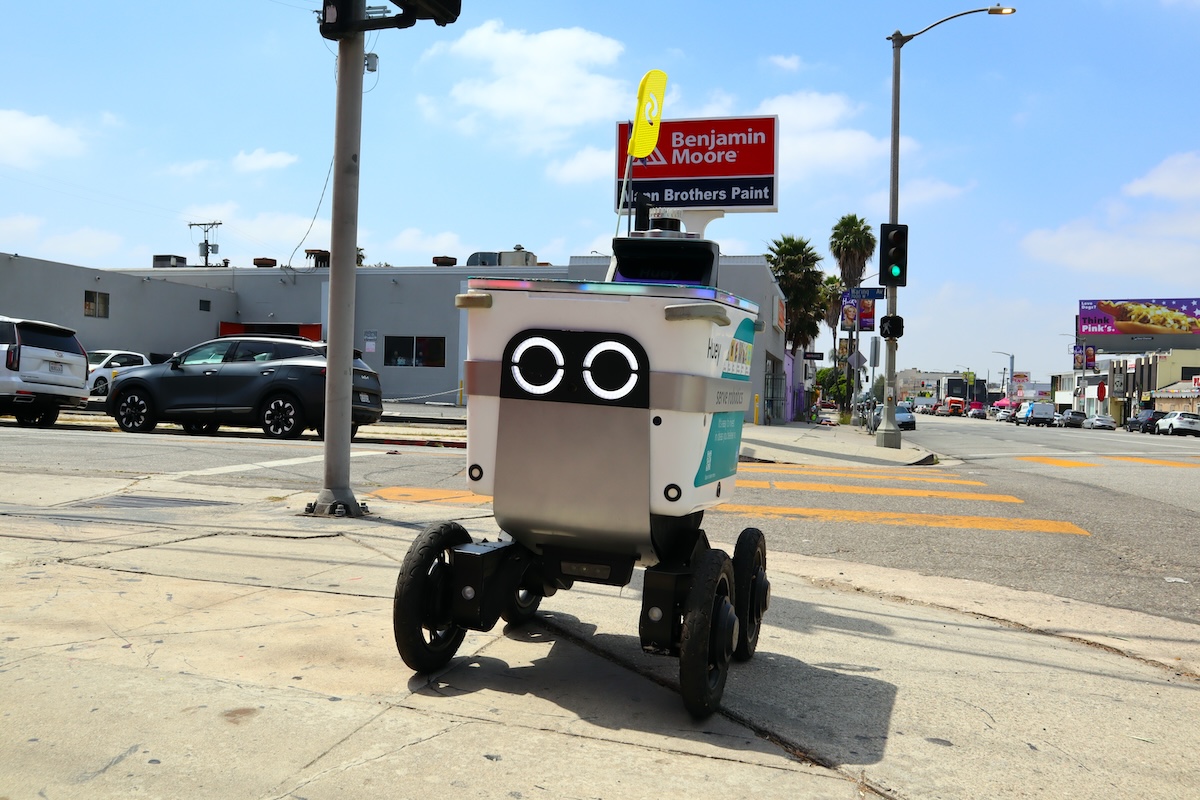
Autonomous delivery startup Serve Robotics (SERV), which brands itself as “the future of self-driving delivery,” may see that future arrive sooner than expected.
Wedbush analyst Dan Ives initiated coverage on the California-based company this week with an Outperform rating, pointing to its strong position in the rapidly growing AI-powered last-mile delivery sector.
The “last mile” is the final step of the supply chain — moving goods from a distribution hub directly to customers’ homes or businesses. Serve’s sidewalk robots are designed to make that last link cheaper, safer, and fully autonomous.
Ives praised the company’s robotic fleet for proving it can safely navigate city streets and sidewalks while offering reliable, contactless delivery. He also noted that businesses don’t need technical expertise to deploy Serve’s robots, which lowers barriers to adoption.
“Serve is positioning itself within the industry by building multiple revenue streams, including delivery, software services, and advertising,” Ives wrote. He set a $15 price target for SERV shares.
Of the seven other analysts covering the stock, six rate it a Buy and one has it at Hold. SERV shares are down 16.7% YTD but have surged 21.6% over the past week.
Expanding with Vayu Robotics
Earlier this month, Serve acquired Vayu Robotics, a pioneer in urban navigation using large-scale AI models. The deal gives Serve an edge in what it calls “physical AI,” strengthening its training capabilities and paving the way for expansion into new delivery use cases.
“This acquisition marks a significant milestone in Serve’s roadmap toward wide-scale deployment of autonomous robots on sidewalks across the nation,” said Dr. Ali Kashani, Serve’s CEO and co-founder.
The company said the integration of Vayu will accelerate its roadmap, improve safety and reliability, and open up additional environments and delivery scenarios.
Ives also highlighted Serve’s ties with industry heavyweights, including Uber Technologies (UBER), 7-Eleven, and Little Caesars.
With plans to grow its fleet to 2,000 robots by the end of 2025, launch in more cities, and expand internationally, he sees Serve as “strongly positioned to gain market share as demand rises for automation, operational efficiency, and sustainable delivery solutions.”
In its Q2 earnings, Serve’s delivery volumes went up 80% quarter-over-quarter. Revenue climbed 46% sequentially to $642,000.
Meanwhile, the company deployed 120 new third-generation robots and expanded into Atlanta while also launching a pilot program in downtown Doha.
As regulatory momentum builds for autonomous delivery and businesses lean harder into automation, Wall Street’s bet is that Serve Robotics may be among the first movers to turn “sidewalk robots” into a mainstream industry.
Your email address will not be published. Required fields are markedmarked